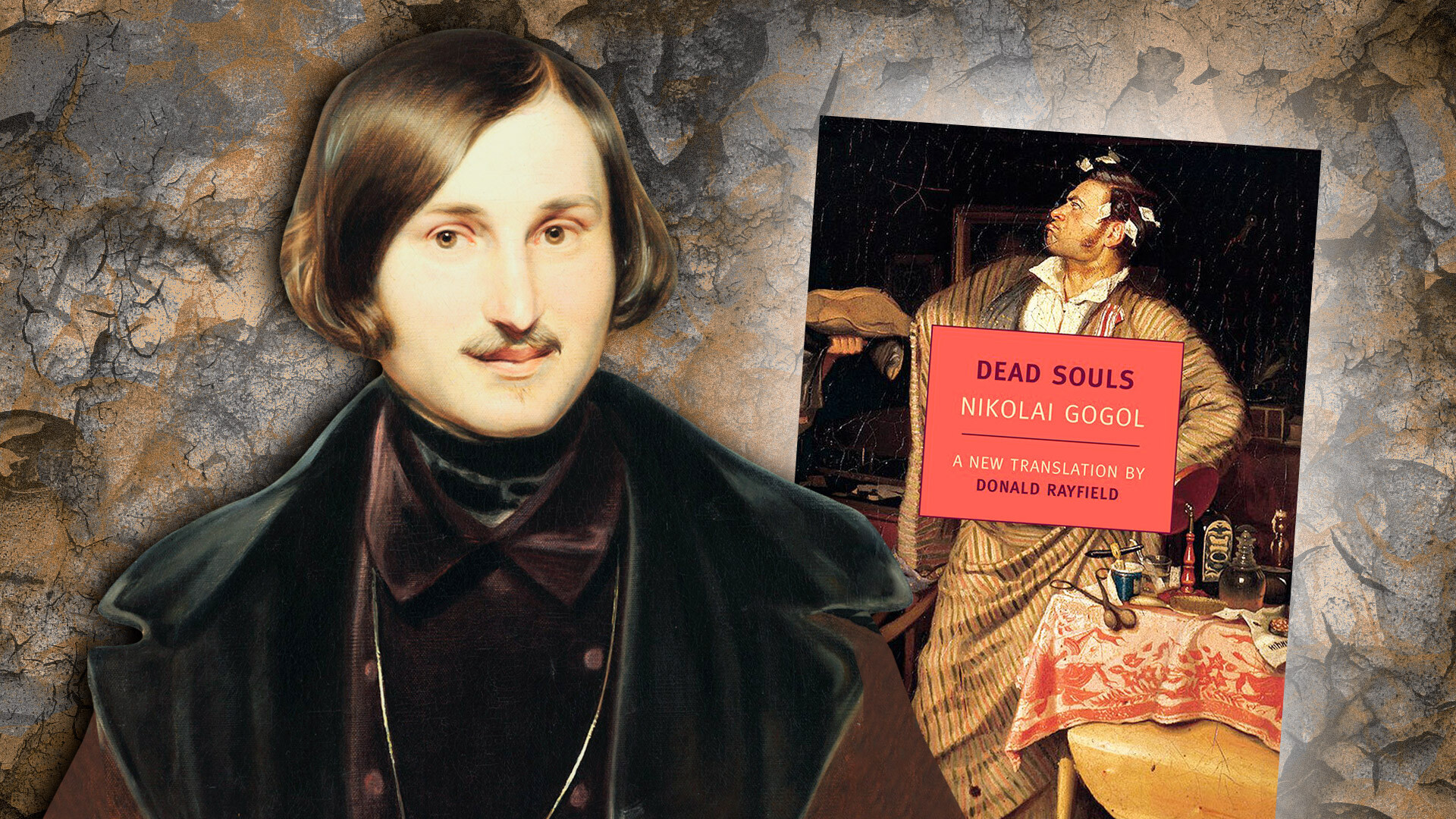
Former official Pavel Chichikov is a very ordinary, unremarkable man. He arrives in an unknown provincial town and pretends to be a landowner. He pays visits to local landlords asking them a very strange request. Chichikov offers to buy serfs (or ‘souls’ as they are referred to in the book) that have already died… The thing is that, in the 19th century, before the abolition of serfdom, there were annual state revisions of the serfs. But, if a serf died between two revisions, he actually still was considered alive before the next one. There’s nothing logical about the fact Chichikov would like to own the “dead souls”, that’s just because he doesn’t need them as people. He just needs to have a certain amount of them to be considered a big landlord which would make his social status higher (his plan is to sell them to a bank as alive people and get more money for them).
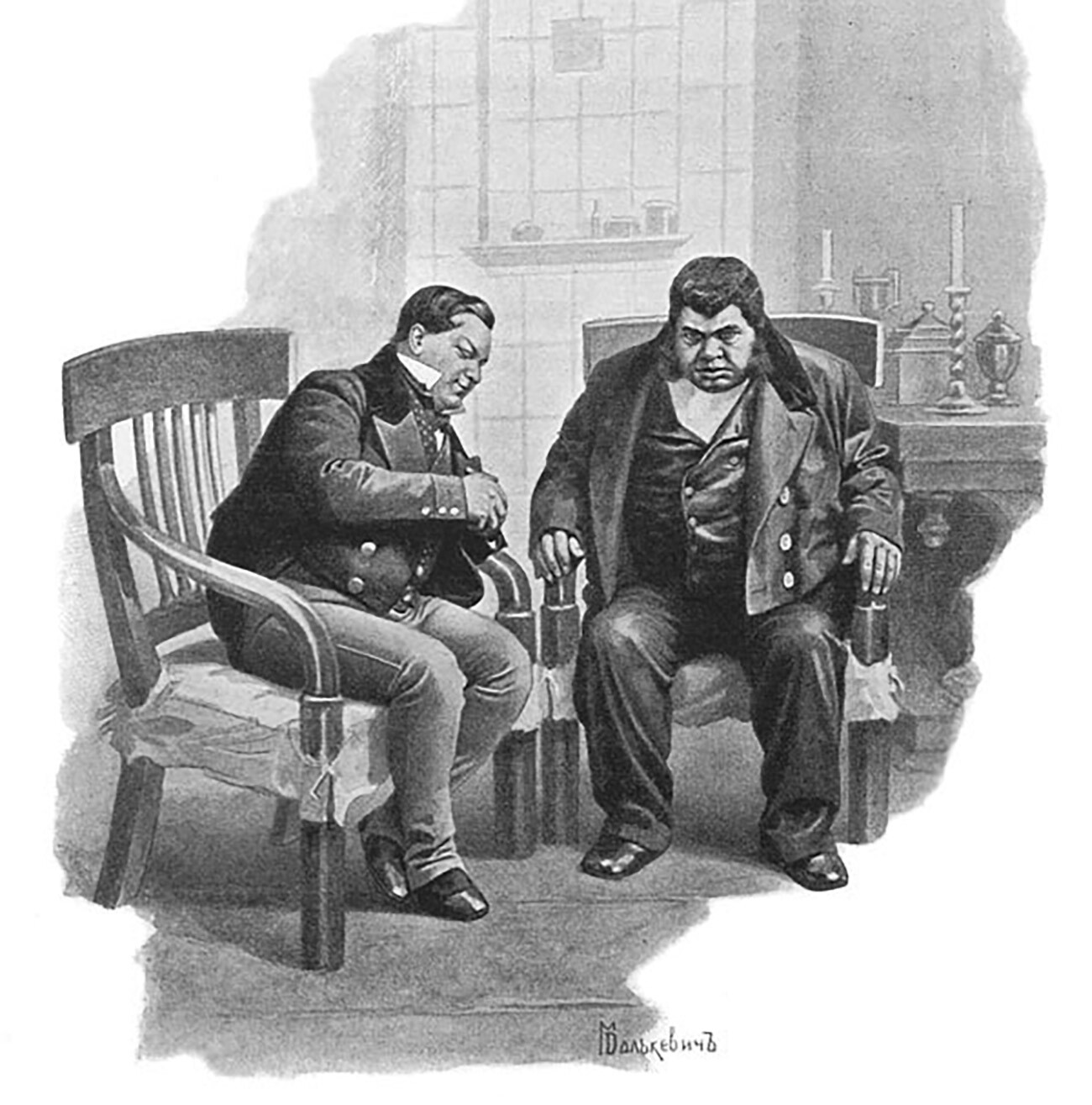
Illustration for 'Dead Souls' by Nikolai Gogol, 1901.
A.Marks publications/Public domainMost of the narrative is Chichikov’s wanderings from one landlord to another. All of them are very different people (but all of them reflect truly Russian characters), just like their estates, and all of them react differently. Some become frightened, others aren’t surprised, while some even try to bargain and ask for a bigger price for the “dead souls”!
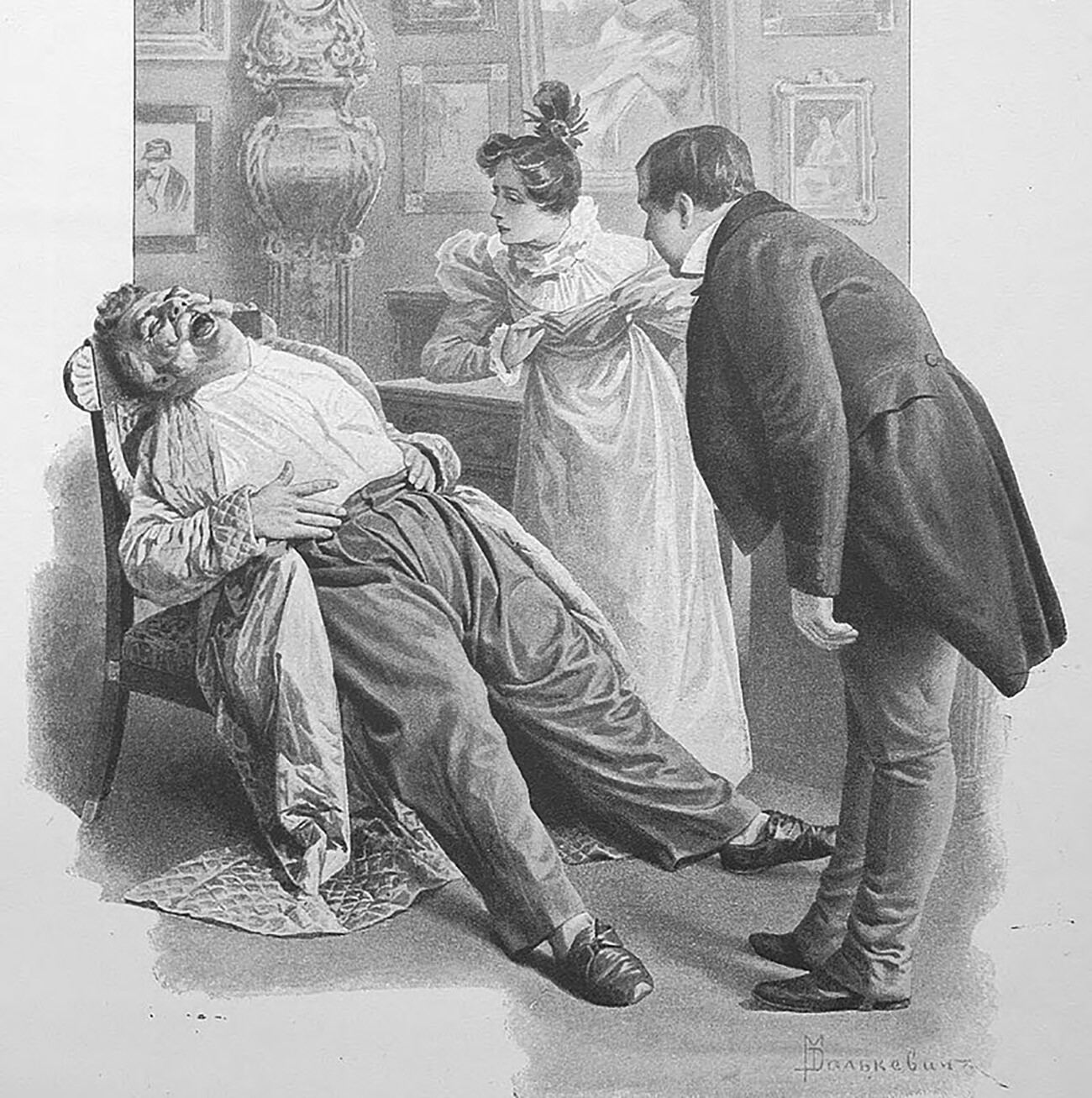
Illustration for 'Dead Souls' by Nikolai Gogol, 1901.
A.Marks publications/Public domainFinally, Chichikov manages to buy some “souls” and the provincial city’s noblemen start rumouring that he is a millionaire. Ladies pay attention to an eligible bachelor. But, the ghostly success doesn’t last long… Finally, everyone finds out that Chichikov bought dead souls, which frustrates the people and they begin making up even worse rumors about him. Upset, Chichikov has to leave the city.
The first and full title of the book is ‘The Wanderings of Chichikov or Dead Souls’ and the author defined the genre as an epic poem, that’s why it’s frequently compared to ‘Odyssey’. Alongside with the main plot line, Gogol gives quite extensive lyrical notes where he talks about Russians and Russia. One of the most famous is pondering about the joy of fast riding on a troika of horses. It starts with the phrase that became an idiom: “For what Russian does not love to drive fast?” And, finally, he wonders, “And you, Russia of mine - are not you also speeding like a troika which nought can overtake?” He tries to find out what this fast riding of Russia means, but this question remains rhetoric.
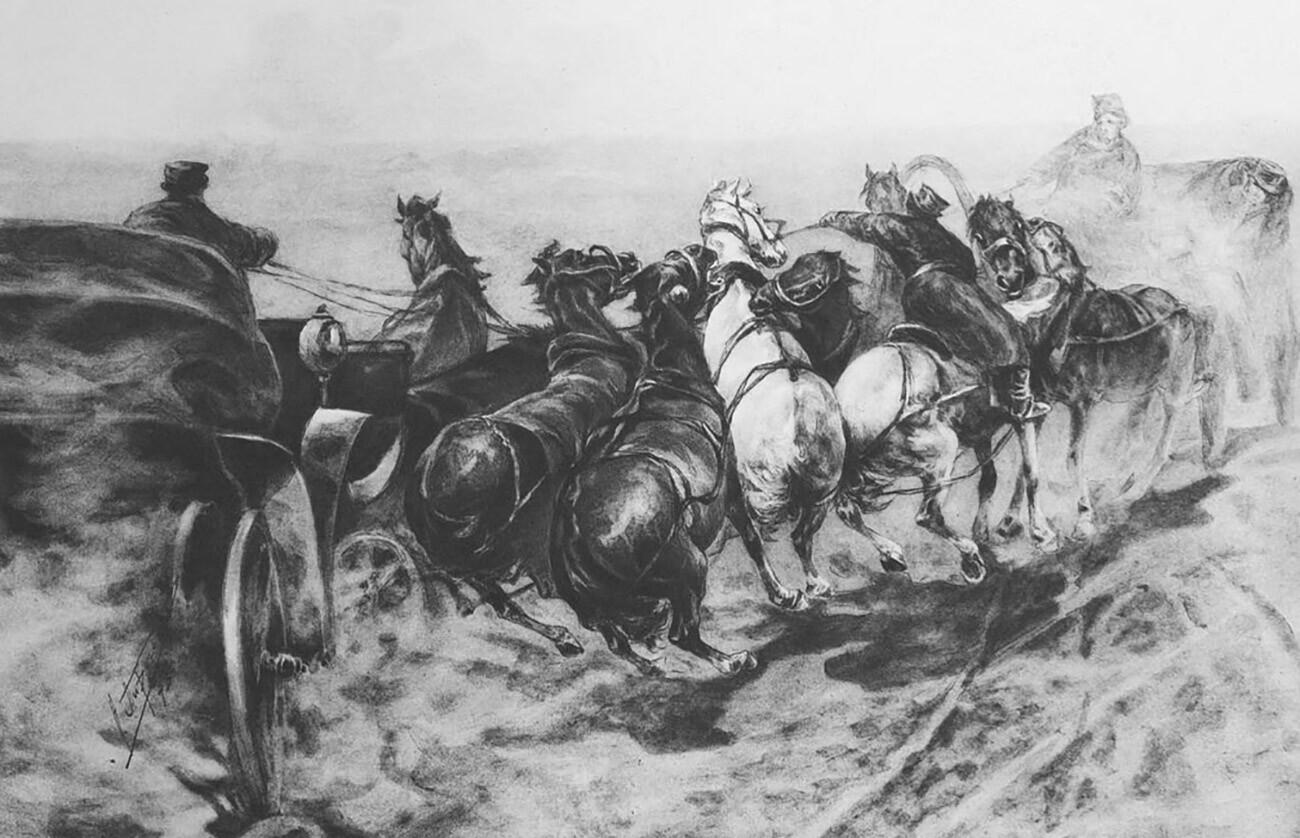
Illustration for 'Dead Souls' by Nikolai Gogol, 1901.
A.Marks publications/Public domainGogol intended to write a big novel with three volumes that would resemble Dante’s ‘Divine Comedy’ structure. The first part is more likely Dante’s Inferno, the second part - Purgatorio and, the third one - Paradiso. Actually, Gogol managed to complete only the first (existing) part and, just like in Dante’s ‘Inferno’, it doesn’t have any positive characters nor optimistic plot lines. It’s all about sins and dirty miserable Russian realities and hypocritical people. Gogol started the second (Purgatorio) volume, but it appeared that he couldn’t portray a single character with some positive traits. Being mad of not being able to fulfill his intention, Gogol burned out the second volume of ‘Dead Souls’ and died nine days later.
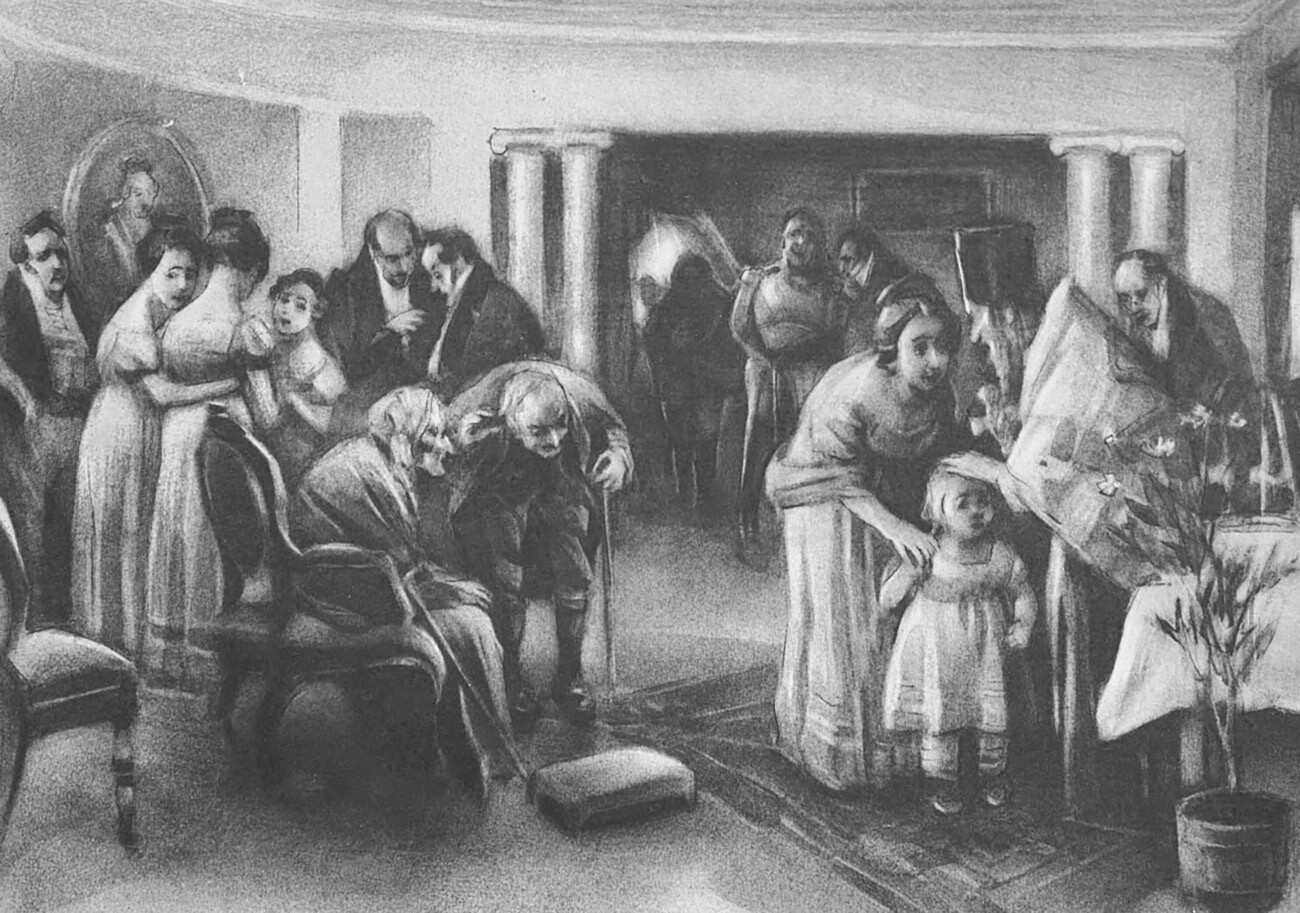
Illustration for 'Dead Souls' by Nikolai Gogol, 1901.
A.Marks publications/Public domainDear readers,
Our website and social media accounts are under threat of being restricted or banned, due to the current circumstances. So, to keep up with our latest content, simply do the following:
If using any of Russia Beyond's content, partly or in full, always provide an active hyperlink to the original material.
Subscribe
to our newsletter!
Get the week's best stories straight to your inbox